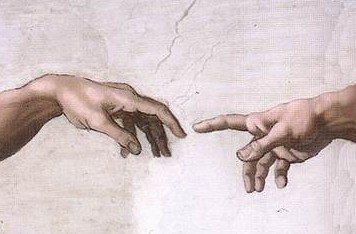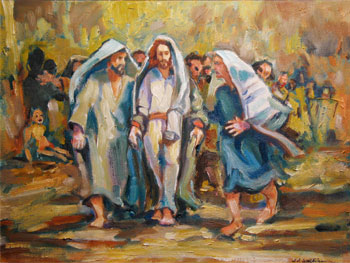
18th
Sunday in Ordinary Time
In the
Philippines: St. John Mary Vianney Sunday
Ex. 16: 2-4, 12-15/ Ps. 278/ Eph. 4: 17, 20-24/ Jn. 6:
24-35
July
has always been designated as the month for wellness and good nutrition.
However, this year, we heard of two shocking news which happened in Mindanao.
Last July 13, it was reported that there were nearly 2,000 people who had
fallen ill due to eating durian candies in Davao and the nearby provinces. Last
July 29, more than a thousand were rushed to hospitals in Dipolog City after
school children vomited and experienced dizziness after taking deworming
medicines. Food which is supposedly a source of health and life became a source
of illness and poison.
However,
this is not the same with the food mentioned in our Gospel today. We are now in
the 18th Sunday in Ordinary. Since last Sunday until the 21st
Sunday of the liturgical year, we shall be reflecting on the 6th
chapter of the Gospel of John which is about the Bread of Life Discourse of Jesus.
Last Sunday’s reading was the opening story which was about the multiplication of
loaves. Today’s Gospel covers the introductory part of the discourse which ends
with a thesis statement: “I am the Bread of Life.”
“I am
the Bread of Life; whoever comes to me will never hunger, and whoever believes
in me will never thirst.” This is one of the “I am” statements which we can
find in the Gospel of John. When Jesus said, “I am the Bread of Life,” he was addressing
to us that he gives his total self for our total lives. He satisfies both our
physical and spiritual hunger. And we can find these two realities in our first
and second reading today.
In our
first reading, the Israelites grumbled against Moses. It was better for them to
remain in Egypt than die of hunger in the desert. Then God instructed Moses on
what to do. “I will now rain down bread from heaven for you. Each day the
people are to go out and gather their daily portion;… Tell them: In the evening
twilight you shall eat flesh, and in the morning you shall have your fill of
bread.” Indeed, God satisfies our physical hunger. He provides for our earthly
needs. However, we have to take note that the Israelites had to do something.
They have to gather every day the flakes from heaven. They have to work for
them to eat.
My dear
friends, this is our first challenge this Sunday. Yes, God is a provident
Father. He provides for our physical needs. However, we need to work. We need
to do something in order to eat. Hence, in the other part of Scriptures we
read, “He who does not work, must not eat.” That is why every time we pray, “Give
us this day our daily bread,” we do not only beg the Lord to provide for our
needs. We are also asked to work in order to be fed. “I am the Bread of Life.”
Our God is a God who satisfies our physical hunger.
In our
second reading today, Paul asks the Ephesians to leave their old selves and put
on Jesus Christ. “You should put away the old self of your former way of life, corrupted
through deceitful desires, and be renewed in the spirit of your minds, and put
on the new self, created in God’s way in righteousness and holiness of truth.” The
Ephesians have to put on Christ for Jesus alone can satisfy their spiritual
hunger brought about by sin.
This is
our second challenge this Sunday. God the Father satisfies not only our
physical but also our spiritual hunger through His Son Jesus Christ. Hence, in
order to gain righteousness and holiness as a remedy to spiritual hunger, then,
we must put on Christ. Thus, in the very first place, we must choose Christ.
The freedom which God has given to us must enable us to “put on Christ.”
We are
all hungry – physically and spiritually. Yet, we also have a God who gives
himself totally – “I am the Bread of Life.” Thus, may we learn to always beg
for the Bread of Life every time we celebrate the Eucharist. Why? Because Jesus
alone satisfies our physical and spiritual hunger.
Most of
us today are food conscious. We always calculate the amount of calories a
certain product has. Some of us have decided not to eat meat or never to drink
softdrinks anymore. We do all these things because we want to have a longer and
happier life. In our Christian life, are we also food conscious? Every time, we
receive the Bread of Life at Mass, are we food conscious? Are we conscious on
what we are eating? Are we conscious on WHO are we partaking? Amen!
NB Photo taken from https://blogger.googleusercontent.com/img/b/R29vZ2xl/AVvXsEjs5qmlbGXekYOg-0Nmmd-XfL8UevwTG2QImCvt4j-4eotkhQ2UJCct0KRZdXNJ2oEellYtgemofIZ8pV8IT36OPnZWfW0S18PtwEx-sYctX3i6GITvBkR-v6hyphenhyphen1kWN3VYfOaPFfpalHF_G/s1600/bread+of+life.png


